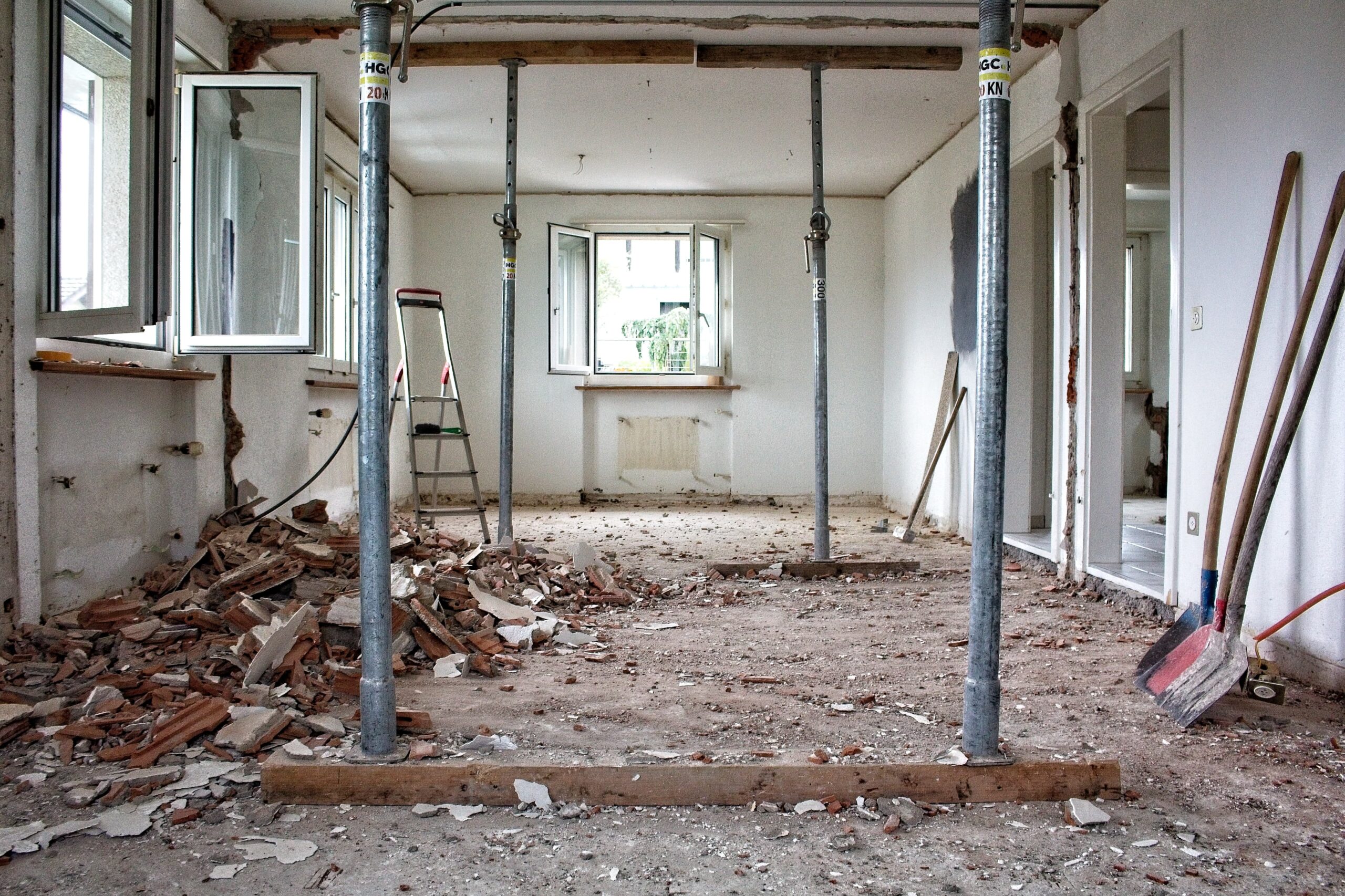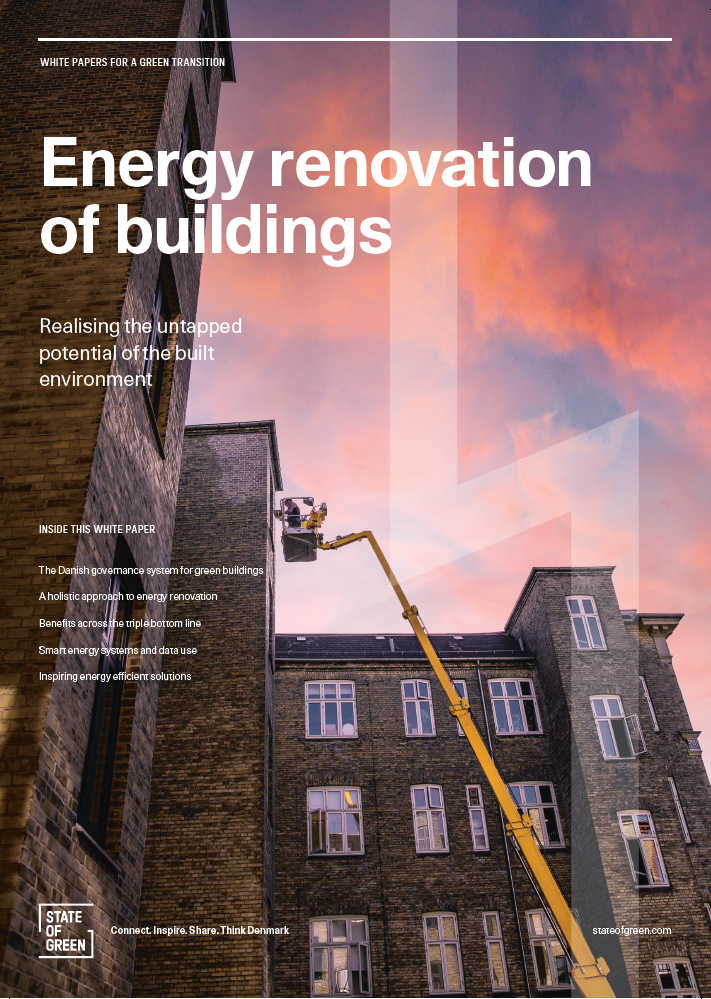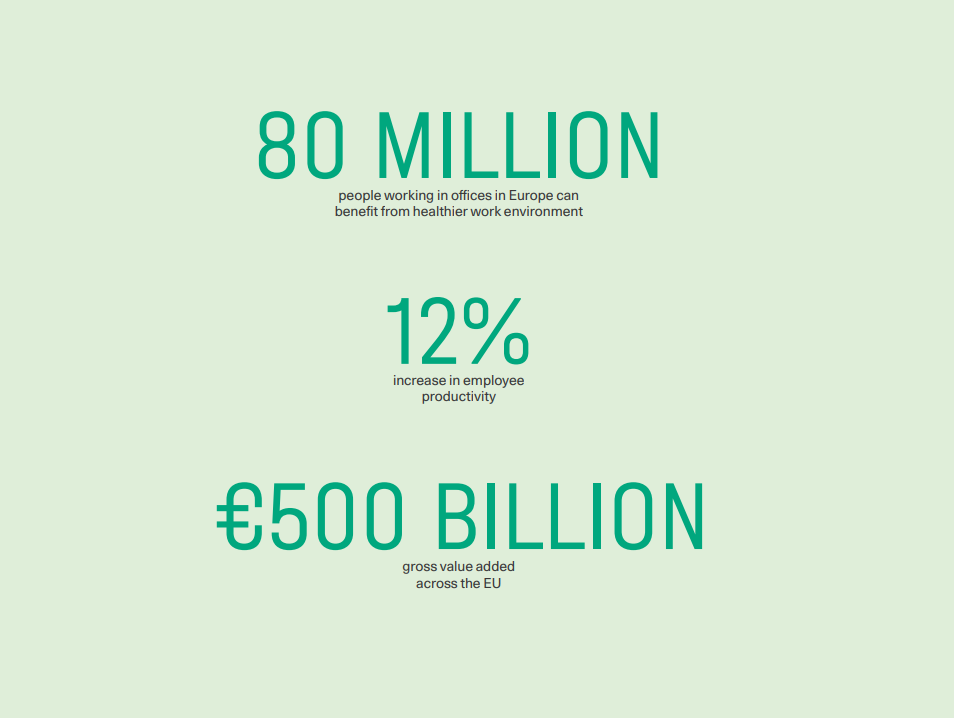Download our publication on energy renovation of buildings today
This article is part of our publication ‘Energy renovation of buildings’.
Download nowPerspective
Buildings
Energy efficiency in buildings
Green financing


Investment and financing are crucial arenas of action in all efforts to accelerate the green transition of our societies. This is especially true for energy renovations of the built environment. In Europe, renovations of buildings with a consistent focus on energy efficiency is one of our most effective ways to reduce CO2 emissions. According to the EU Energy Efficiency Directive, member states are required to renovate at least three% of the total floor area of all public buildings annually. However, given that the renovation requirement does not include energy renovations by default, it takes focus, xpertise, and funding to realise a building’s full energy saving potential.
Those same resources are needed in the renovation of private buildings and homes, where the gap between the incentive to renovate and funding might seem especially difficult to bridge in the short term. Thus, the financial backbone must be secured, guaranteed, and integrated in any renovation project.
Whether you are a private house owner or a public entity with a large building portfolio, accessible funding is vital in ensuring that supranational and national recommendations are translated into action. The structuring of loans is a key component. Here, working with options such as fixed rates and loans without collateral can make the decision to go through with energy renovations more viable. On the funding side, financing based on guaranteed savings, in line with the ESCO model, is a way to take long-term responsibility for the solutions implemented.
In the big picture, such models help push the general behaviour of the green investment market towards recognising the responsibility of financing organs in the green transition. By strategically enforcing sustainability and energy requirements, they play an important role in both financing and incentivising energy renovations.

This article is part of our publication ‘Energy renovation of buildings’.
Download nowAs with most areas of the green transition, it is beneficial to take a holistic approach to financing energy renovations. For instance, by offering one-stop solutions that include advisory, professional project and funding management, contracting, financing, and follow-up monitoring, energy renovations can be made more feasible and well-tailored. The benefits of investing in holistic building renovation extend beyond the environment.
The IEA’s sustainable recovery report found that, per euro invested, building renovation is our biggest job creator with 12-18 local jobs for every million invested. The EU Commission estimates the potential for an additional 160,000 green jobs in the construction sector in the EU by 2030. Thus, investing in and financing energy renovation is also good business.
Source: Building 4 People – Quantifying the benefits of energy renovation investments in schools, offices and hospitals

Investing in renovation is good, green, and healthy business.
Offices account for 23% of the total floor area of the EU’s non-residential building stock and house 80 million workers. Thus, investing in renovation of office buildings can be impactful, both for the environment, the workers, and the economy. By providing an energy efficient, comfortable, and healthy workspace, holistic renovation of a typical office can lead to a 12% increase in employee productivity.
At a European scale, that could be worth up to 500 billion euro annually. These types of benefits extend beyond offices. For hospitals, optimising the indoor environment can reduce average time spent in hospitals by 11%. Across 90 million patients annually, that is a societal benefit worth around 42 billion euro. For schools, optimizing the indoor climate heightens student performance, letting them achieve the same learning results two weeks faster per year.
News
Job creation and just transition
+1